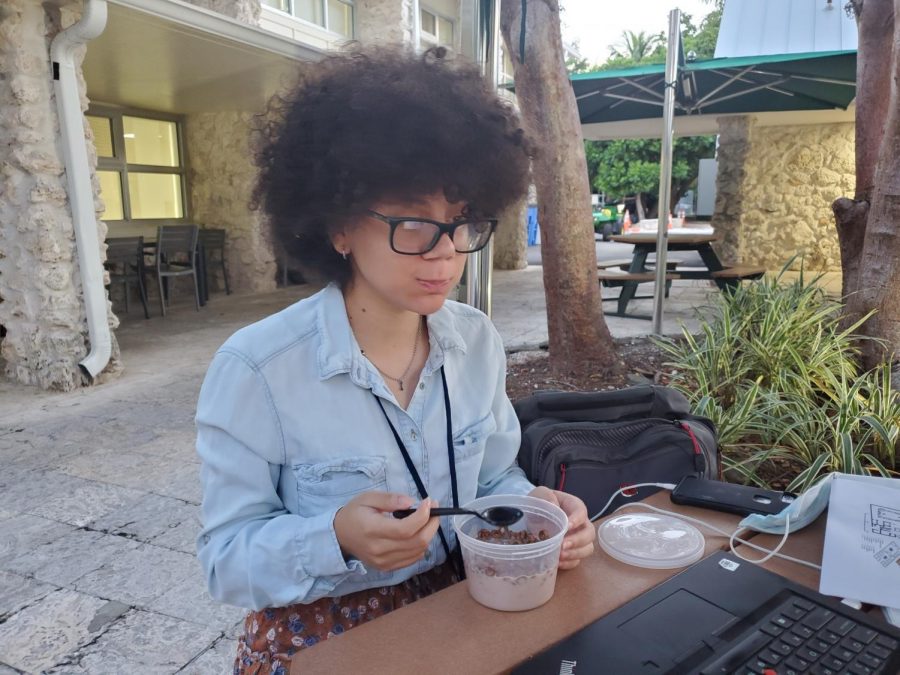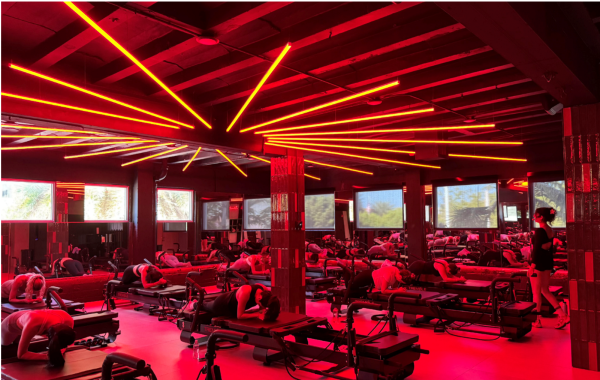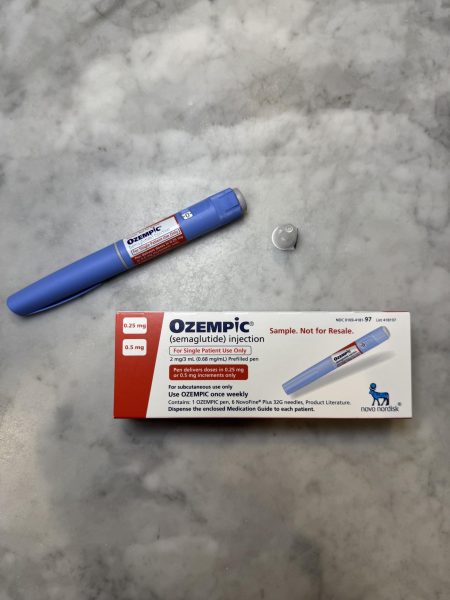Breakfast: great with jam, or ‘just a scam’?
If it’s the most important meal of the day, why do so many Upper School students skip it?
Inceni Cabrera ’22 enjoys a quick breakfast while studying in the early morning.
Many students have grown up starting their mornings with the “most important meal of the day,” breakfast. Parents tend to encourage having something in your stomach before the day begins, whether it means running out the door with coffee and burnt toast in hand or sitting down to a full-course meal with eggs, pancakes and sausage. And yet, many of today’s teens, at least at Ransom Everglades, do not even bother with this morning meal.
How can this be? If students often begin their days without breakfast, is it really the most important meal of the day? And what consequences come from eating or skipping this supposedly all-important meal?
In a poll surveying Upper School students’ breakfast habits, The Catalyst found that up to 47 percent of students do not eat breakfast regularly and 17 percent just skip it all together. This means that at least half of the student body will, at some point, come to school with empty stomachs.
Some of the frequent breakfast skippers, such as Anastasia “Ani” Victor ’22, even went so far as to defend their choice on ideological grounds.
“I think that breakfast is a scam. I think that it’s marketing, all marketing. I think breakfast is just something that people made up so that you would buy their products more often,” Victor said.
Victor’s claim has some historical basis. According to The History Channel, coming into the industrial revolution in the 1800s, what people ate for breakfast evolved with the changing times. American laborers that worked in factories or offices had to deal with strict, early scheduling and had little time to eat an early meal. In response, cereal companies like Kellogg’s took this opportunity to advertise fast and “healthy” meals, which led to the branding of breakfast cereals as a staple in American diets. But as the market’s competition increased, breakfast companies started adding more salt, sugar and other additives to “out-flavor” their competitors while still claiming to be a healthy part of your morning. (Eggos are fire, though.)
With a history as complicated as this, it’s no wonder there is such a wide variety of discourse around the credibility of eating breakfast at all. While this point may justify why students may skip breakfast, there are still other factors that probably affect student decisions as well. A portion of the survey asking students about the main reason they skip breakfast found that:
1) 86% of students don’t have the time to eat breakfast.
2) 58% of students are just not hungry in the morning.
3) 17% of students don’t like eating breakfast.
4) 8% of students have sports and avoid having breakfast beforehand.
5) ~1% of students have Speech and Debate. (Those poor souls…)
Many students who skip breakfast do so because they need to be out the door in time before school starts. (And I don’t know if you’ve noticed the morning traffic coming to Ransom Everglades, but it is not the snack that smiles back.) And when they wake up that early to beat that morning traffic, these students tend to have lower appetites with no urge to decide whether they want their eggs scrambled or fried. As Holly Alesandro ’23 put it, “It’s just that for many people, including myself, eating breakfast before school is very difficult because of a lack of both hunger and time.”
Although it may seem that the majority of RE students do not prioritize eating breakfast, many still view it as an important meal and see the health benefits associated with it. According to Victoria, Australia’s Better Health Channel, these benefits range from satisfying daily nutrient intakes to aiding in healthy weight maintenance or loss and reducing risk of illnesses such as obesity and Type 2 diabetes. It also improves energy levels and mental concentration, which is important if you’re going to stay focused for that morning lecture.
These benefits largely align with pro-breakfast students’ sentiments. Catherine Buckner ’24 noted that without breakfast, “I’m generally more distracted on how hungry I am in my 1st couple of periods so I’d say it’s pretty important and I should probably eat it.” Other students feel like eating breakfast affects their moods and social habits as well. Jaerla Sajous ’25, for instance, feels that when she eats in the morning, “that’s how I get energized to start my day. Plus, I spent 8+ hours sleeping and not eating so I wake up hangry.”
From a scientific perspective, the benefits of breakfast are clear, but the situation is more complicated than students might think. Dr. Claudia Ochatt, RE’s anatomy teacher, explained that there’s more to breakfast than getting your early morning Pop Tart fix.
When it comes to assuring proper nutritional needs, “One meal does not make it or break it, but rather everything that will do with all our meals through the day,” Dr. Ochatt said. “If breakfast were to be your only meal during the day, and you had breakfast, let’s say, at 11:00 in the morning, and you didn’t have anything the rest of the day and were doing active work, your body still wouldn’t be engaged. You would wake up with low glucose and by 11:00 a.m. your glucose would be really, really low. Should you be doing that? Definitely not. You could faint.”
As Dr. Ochatt explained, the importance of breakfast depends on many factors like the timing, the nutritional value of the meal and the quantity/quality of other meals you have throughout the day. Sure, you could have a healthy and aesthetically pleasing acai-bowl before you head to school for the day and benefit from an initial boost of energy. But if you skip lunch and have McDonalds for dinner every day, the benefits of having that meal will be overshadowed by the consequences of a generally unhealthy diet.
And this logic also applies to the kind of breakfast people have. Since eating a breakfast that contains a lot of additives, refined carbs and/or sugar, can provide little to no additional nutrition to one’s diet, eating that kind of meal may be more detrimental to a person’s health than beneficial.
At this point, the verdict still stands: Should I slap some jam on some toast and call it a day? Or should I just throw the idea of breakfast away?
Overall, it’s a good idea to have at least something relatively healthy in the mornings to get your day going, like an egg burrito or even a small granola bar. But if you can get enough nutrients from your other meals and would rather just have a cup of joe and be out the door, then that decision is up to you.
As Veronica Kerr ’23 put it, “It can’t be good to just drink coffee on an empty stomach, but when has logic ever convinced a high schooler to change their habits?”

Dominique Smith '22 is a staff writer for the Catalyst. She specializes in features and multimedia content.







